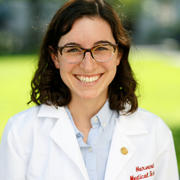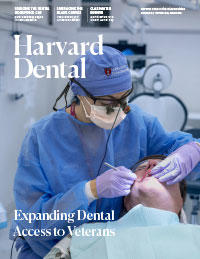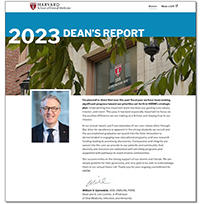
In a recent American Journal of Public Health (AJPH) editorial, “Oral Health and Medicine Integration: Overcoming Historical Artifact to Relieve Suffering,” Stephen A. Martin, MD, EdM, assistant professor of Family Medicine and Community Health at the University of Massachusetts Medical School, and Lisa Simon, DMD, Harvard School of Dental Medicine fellow in Oral Health and Medicine Integration, argue that oral health should increasingly become part of overall health care services and training.
According to former Surgeon General David Satcher, poor and minority populations are most impacted by oral health concerns, accounting for eighty percent of oral health problems in this country. Yet their oral health is often ignored when it comes to health insurance. Medicare, most adult Medicaid programs, and many private insurance plans exclude dental care.
Drs. Martin and Simon challenge the status quo and propose an important question to the medical community: Why should oral health care be different than any other kind of preventative primary care? Medical providers routinely treat healthy people with expensive medications to prevent a cardiovascular event, so why don’t we afford the same privileges to those suffering with dental decay and pain? To increase access and alleviate suffering, the authors propose systemic changes to the way we provide both primary care and oral health care.
With dental problems accounting for two percent of emergency visits and, in some areas, more than ten percent of primary care visits, dental and primary care collaboration is one of the first steps to address this pressing problem. The authors argue that making oral health care training part of medical and nursing curricula, including training for procedures such as dental anesthesia and tooth extraction, would increase both interprofessional collaboration and access for vulnerable populations.
They also advocate for further changes to the establishment that could make access to basic treatment more readily available through additional providers such as dental therapists, comparable to nurse practitioners. Actions like these and others they outline in the article, could safely and significantly expand access to care.
“As a dentist and future physician, I know the integration of oral health into the medical system couldn’t be more important. The path forward will benefit my patients as well as millions of Americans,” Dr. Simon said.
In the long run, integrating oral health and medical care not only makes financial sense by stemming systematic illness, but makes common sense by treating the mouth as part of the body.


